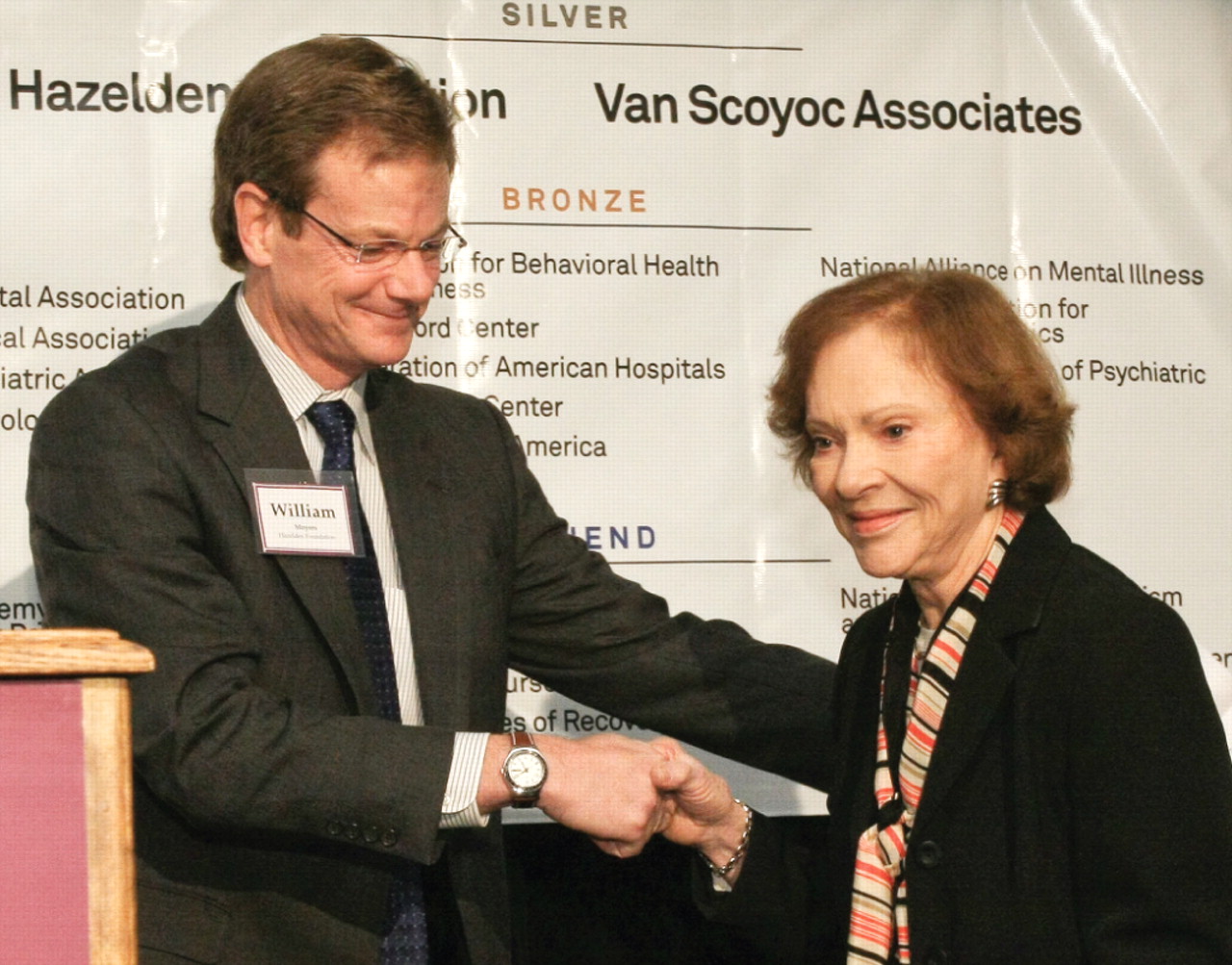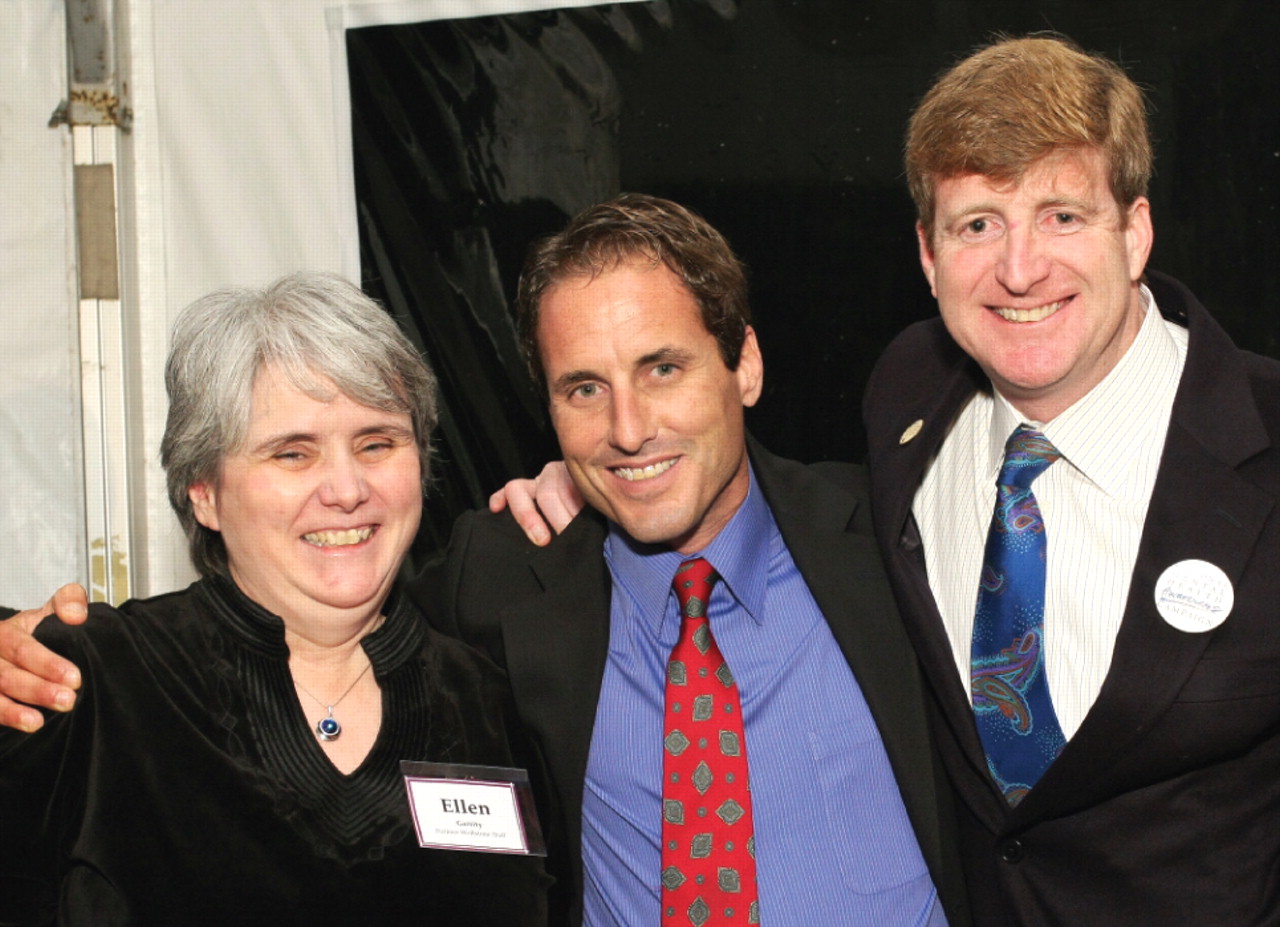The story of the recently enacted mental health insurance parity law is a story of overcoming stigma. That was how mental health advocates and legislators described the battle to establish a stronger national parity standard when they gathered in November to celebrate their victory in Washington, D.C.
“The first step toward changing the perception of mental illness and addiction disorders is changing the discrimination that is embedded in our laws. And that's what we did,” said Rep. Patrick Kennedy (D-R.I.), who spoke at the event celebrating enactment of the Paul Wellstone and Pete Domenici Mental Health Parity and Addiction Equity Act of 2008 (PL 110-343).
Kennedy, one of five congressional parity champions who were honored at the victory event, said that changing the law would also ultimately change both the delivery of mental health services and their perception by individuals and families who may be seeking them.
The law, signed by President George W. Bush on October 3, is important because people with mental illness and addictions now know they'll have their treatment covered by insurance, Kennedy said, and because the knowledge that they are entitled to such treatment will make them more likely to insist on receiving it.
About 200 attendees also applauded the comments of parity advocates Sen. Pete Domenici (R-N.M.) and Rep. Jim Ramstad (R-Minn.). Sen. Mike Enzi (R-Wyo.) and leading parity proponent and sponsor of the Senate bill, Sen. Edward Kennedy (D-Mass.), were unable to attend.
“These were the folks that carried this legislation for many years. They stayed with it and got it through,” said APA Medical Director James H. Scully Jr., M.D.
Another high-profile parity advocate in attendance was former First Lady Rosalynn Carter, who has been a major force for positive change in the mental health field throughout her public service career. She said that by passing legislation for parity coverage of mental illnesses, including substance abuse, Congress had made an important statement that these diseases should be treated like any other medical illnesses.
Another emotional highlight was the comments of David Wellstone, son of the late Sen. Paul Wellstone (D-Minn.), who was a longtime advocate for a stronger mental health parity law than the limited one enacted in 1996. Paul Wellstone died in a 2002 plane crash while campaigning for reelection.
One key to the passage of the new parity law was the decisive organizational and advocacy role played by several coalitions that included members of the mental health and substance use treatment community, such as the Ad Hoc Coalition on Mental Health Parity, Coalition for Fairness in Mental Illness Coverage (CFMIC), Mental Health Liaison Group (MHLG), and the Parity NOW Coalition. APA is a member of both the CFMIC and the MHLG.
Those groups in turn praised the work of numerous congressional staff, who were able to keep them unified and working toward the same goal. It was that unified push that several speakers said led to the decision by congressional leaders to use the parity legislation as the vehicle that would best enable passage of the financial bailout package of which it was a small part.
Some attendees at the celebration braced those present for the next phase of the parity battle: the regulatory decisions that will define how the law is interpreted and implemented.
“Moving forward, we will certainly monitor the issuance of regulations implementing the law to ensure that there is a coordinated effort between the three departments charged with this task—Labor, Treasury, and HHS,” Kennedy emphasized.
He noted that the law requires the Government Accountability Office to conduct a study within three years of enactment to analyze patterns, rates, and trends in coverage and exclusion of mental illness, including substance abuse, by health insurance plans. That report and subsequent reports required by law will “provide a roadmap that highlights critical information in the monitoring and assessment of the new parity law,” Kennedy said.
Scully noted that advocates also were going to be vigilant about ensuring that the wider health care overhaul effort expected to begin with Barack Obama's presidency and the next Congress would include expanded access to treatment of mental ilness, including substance abuse.
“We have to make sure that whatever happens with general health care reform, mental health parity is part of it,” Scully said. ▪



